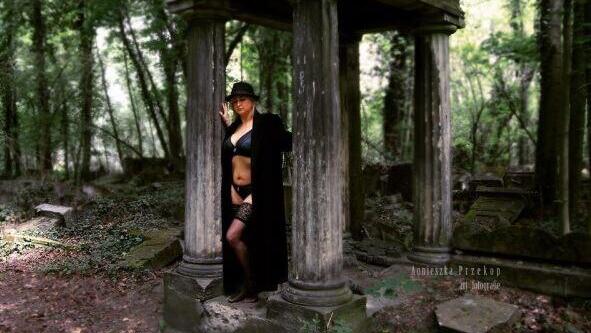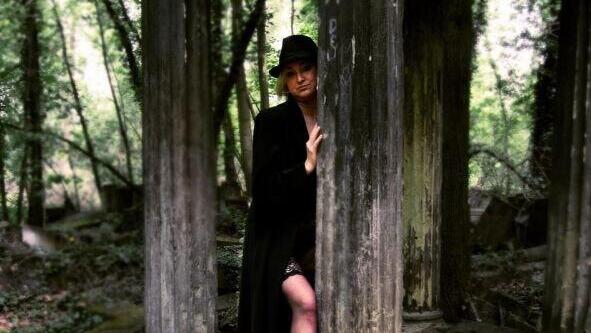Getting your Trinity Audio player ready...
Polish photographer Agnieszka Przekop took provocative and revealing photos of female models in the Jewish cemetery in the southern Polish town of Częstochowa where Jews were buried between the mid-18th century and the Holocaust.
Częstochowa’s Jewish community numbered almost 30,000 people prior to the Holocaust, but only about 5,000 survived.
Przekop, who is based in Germany, shared photos of a scantily clad model posing atop the cemetery's tombstones on her business page.
One location the photographer chose to feature was the grave of Michael Wolf Besserglick, a wealthy local businessman. His extravagant, well-preserved gravesite features an arch and pillars which testifies to his wealth.
Polish researcher Krzysztof Bielawski from the National Museum of Poland in Warsaw, commented on the photos in protest, asking Przekop if she would have taken similarly indecent pictures at the graves of her ancestors. The post went viral and dozens of angry comments poured in.
Meir Bulka, the founder of the j-negations foundation which works to preserve Jewish heritage in Poland, reported the photos to the authorities, and a complaint was filed with the Polish police for offending religious feelings, in accordance with Polish law.
"The heights of antisemitism are reaching new levels, and this time they are entwined with ignorance and stupidity," Bulka said. "It’s unthinkable that someone would think that Jewish cemeteries are a fitting photography studio, especially for taking revealing photographs.”
“We and the authorities must oppose such cases and bring the perpetrator to justice - just as they would have if such actions were taken in a Christian cemetery,” he added.
Following the complaint, the photographer removed the photos from her Facebook page. However, Jewish activists expect the case to be treated seriously. "Polish Jews who are buried in Poland are Polish citizens and have rights even though some may think they don’t," Bulka said.
"The responsibility lies with the authorities - both for enforcement and education of young generations regarding such cases."



